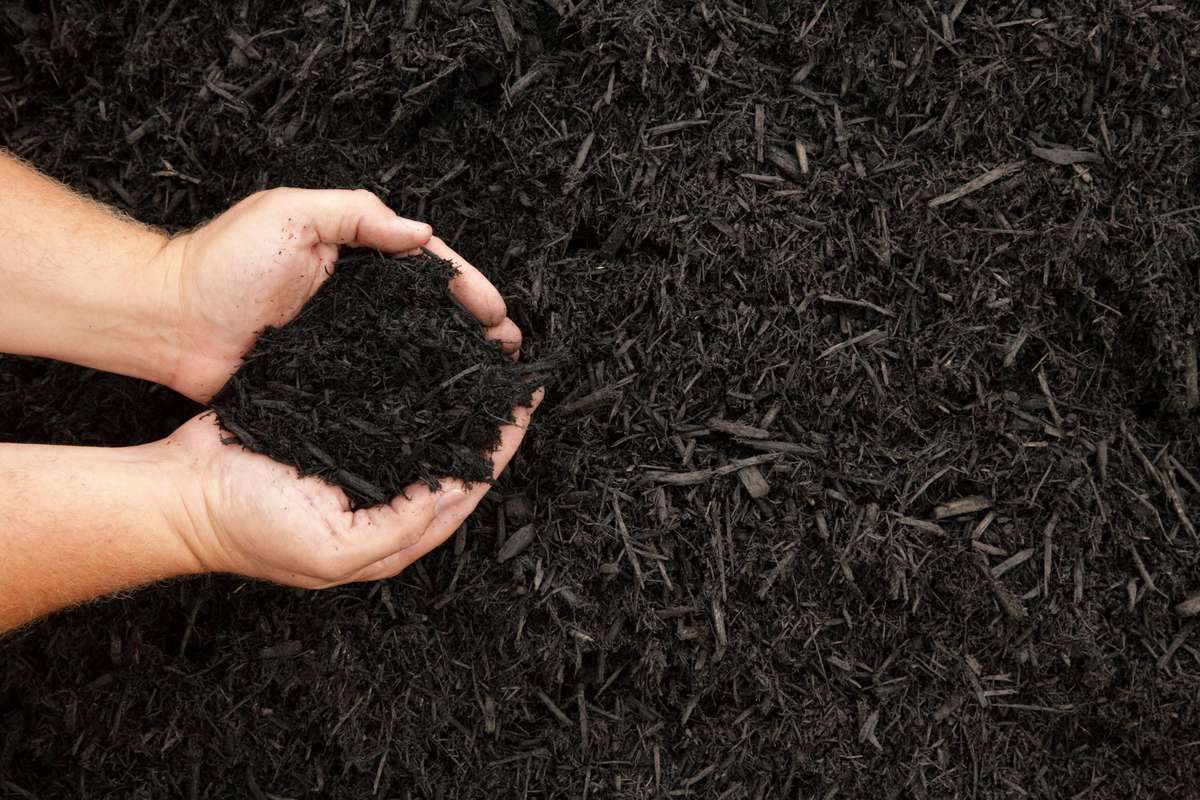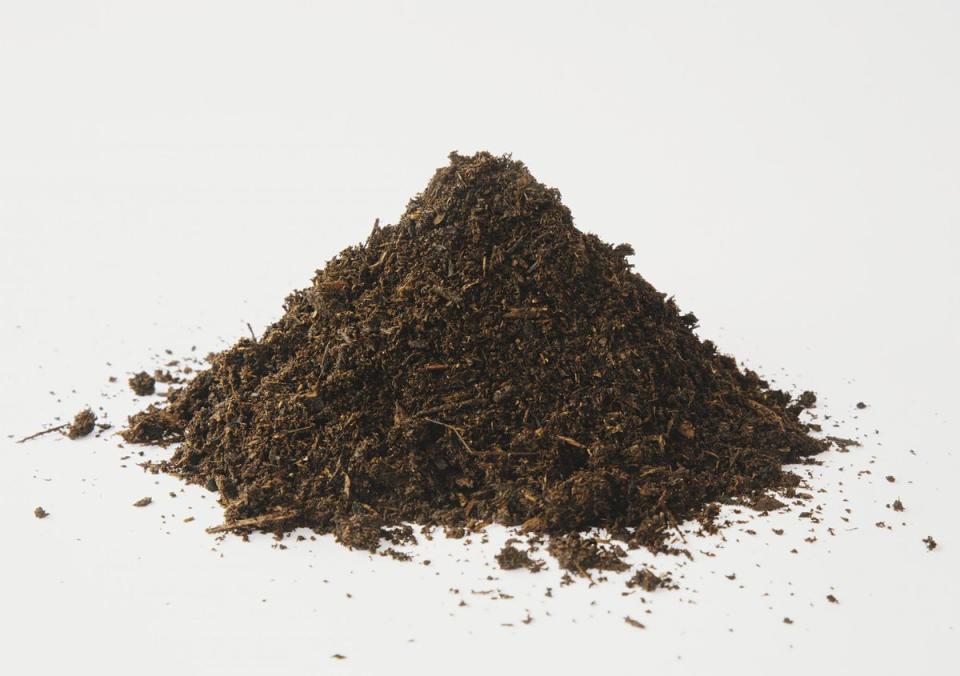6 Types of Organic Mulch That Are Better Than Rubber

witmerphotography/Getty Images
TABLE OF CONTENTS
On This Page
Why You Shouldn't Use Rubber Mulch
So, Why Use Organic Mulch?
Organic Mulch Options
Rubber mulch didn't start out as a gardening product. It found its niche as a bouncy, soft surface for children's playgrounds. Yes, research showed that if a kid fell onto rubber mulch from six feet up on a jungle gym, he was less likely to be injured than if he fell on rocks, concrete, broken glass, or sharp steel spikes.
But as the number of children's playgrounds is minuscule compared to the number of houses and gardens out there, the rubber mulch folks turned their attention to suburbia. "Let's get moms and dads to spread ground-up tires all over their landscapes," they said. "It'll be HUGE!"
So, in order to do this, they had to tout the benefits that rubber mulch has over organic mulches like pine bark, shredded hardwood, and pine straw. Here are some of the selling points they came up with:
Rubber mulch promotes recycling—and provides an excellent model for recycling all of those spent fuel rods piling up at nuclear plants.
Unlike natural mulches, rubber mulch doesn't decompose, so it's "sustainable." It doesn't add any nasty organic matter to the soil the way bark and pine straw do.
Rubber mulch keeps the soil surface cool by trapping all of the sun's heat atop it where your feet are.
You can get rubber mulch in almost any color imaginable.
Why You Shouldn't Use Rubber Mulch
Rubber Mulch Is Not Healthy For Your Garden's Health
Rubber mulch isn't a healthy choice. Like everything else, it does break down, and when it does, it leaches a witch's brew of heavy metals and toxic chemicals into the soil and groundwater.
Rubber Mulch Is a Fire Hazard
Rubber mulch is also a fire hazard—it burns at a much higher temperature than natural mulches and belches toxic smoke.
It Smells Bad
Not gonna sugarcoat it for you. I hate rubber mulch. It stinks—literally. On a hot summer day, it smells like hot tires. I don't know about you, but 'Eau de NASCAR' is not a fragrance I enjoy wafting through my garden.
Rubber Mulch Looks Bad
Colored mulch looks horrible. Putting down orange or purple rubber mulch on your lawn should be a crime.
It Is Difficult to Remove
Getting all the little rubber pieces out of the soil in your flower bed is a huge pain. You may even have to remove the top layer of soil to get them all out of the ground. On the other hand, organic mulch will decompose naturally, so you don't have to worry about getting it all out of your garden.
So, Why Use Organic Mulch?

ozgurcoskun/Getty Images
It Is Good For the Environment
Natural mulch slowly decomposing over time is a GOOD thing. Adding organic matter to the soil loosens it, increases nutrient and water retention, feeds earthworms, and benefits soil microbes.
Organic Mulch Looks Good
There's nothing quite like a fresh coat of mulch in your garden beds.
It Helps Control Weed Growth
You won't have to be bending over backward pulling up so many weeds in your flower bed. Mulch helps control weeds while boosting your produce quality.
Organic Mulches Are Better at Retaining Moisture
Organic mulches do a great job of retaining moisture in the soil and keeping it cool.
It Is Relatively Inexpensive
It's pretty inexpensive, although you will have to replace it more often since it decomposes. Rubber mulch and other inorganic mulches generally have a higher upfront cost.
Organic Mulch Options
Here are a few options to choose from when selecting a type of organic mulch for your garden.

Mint Images / Getty Images
Bark and Wood Chips
Bark and Wood Chips are commonly used types of mulch that are good for retaining moisture, keeping the soil insulated, and suppressing weed growth. It's also fairly inexpensive and is very pleasing to the eye. This type of mulch is best used for landscaping and vegetation, though it should not be used in vegetable fields as the acidity levels may be too high.
Dry Leaves
Next time you rake your leaves, consider using them as mulch. Dry leaves contain a lot of nutrients that will help improve the condition of your soil while maintaining moisture and preventing weed growth—and they do even better when composted. Shredded dry leaves will decompose faster, won't mat as much, and generally looks nicer. However, normal raked leaves do just fine—just move it every once in a while to prevent matting. It can be used in all gardens, and earthworms love it too!
Grass Clippings
There are both pros and cons to using grass clippings as a mulching option. Some advantages are that grass clippings will add to the amount of nitrogen in the soil, promote growth, are abundant and free or inexpensive, and control weeds. However, when decomposing they may give off a foul odor, so it's best to use them in a place that you don't frequent often in your garden and turn them at the end of the season to prevent too much smell. Don't use the clippings during a rainy time of year, as they could develop their roots. It is also important to make sure to spread out grass clippings in a thin layer so it doesn't prevent moisture from getting through.
Straw
Straw does great in vegetable fields, as it keeps disease away from the lower levels of the plants, reflects light, retains moisture, adds nitrogen to the soil, and controls weeds. In fact, straw does not have seeds that will produce weeds. Straw should endure the whole growing season and is not hard to rake up or into the soil if you need to—meaning less work for you.
Compost
Compost will provide a slow-release nutrient boost and will improve the health of the soil, while adding a protective layer, ensuring moisture, and giving the plants some insulation from harsh temperatures. Plus, it's something you can make at home.
Newspaper
After reading the paper for the day, try tearing it up into little pieces and using it in your garden for mulch! Newspaper is super helpful for insulating your plants from the cold in the winter months, and will also prevent too many weeds from growing.
With all these organic options, who needs rubber mulch anyway? That extra bounce it puts in your step just ain't worth it. Do you use rubber mulch? What kind of organic mulch do you prefer using?